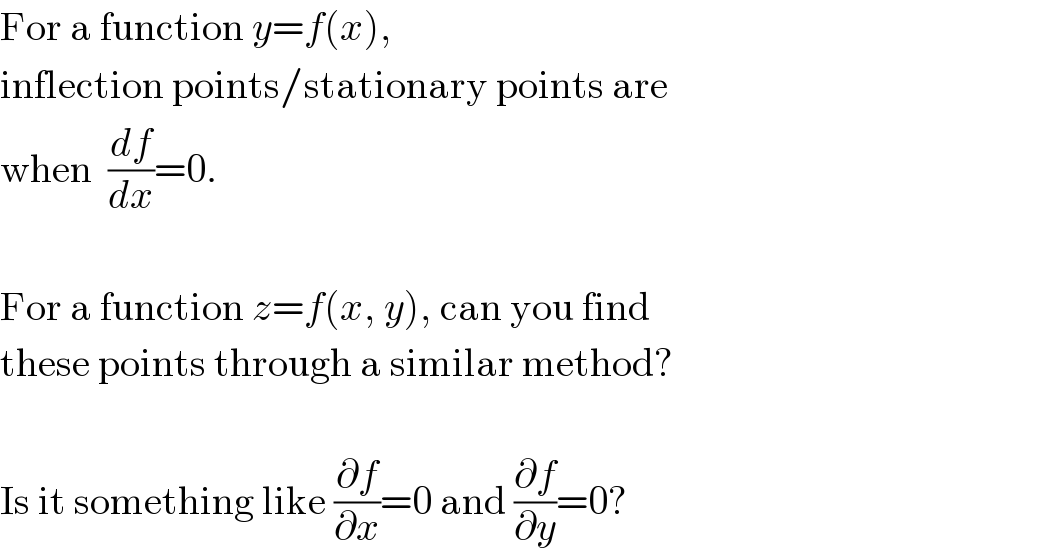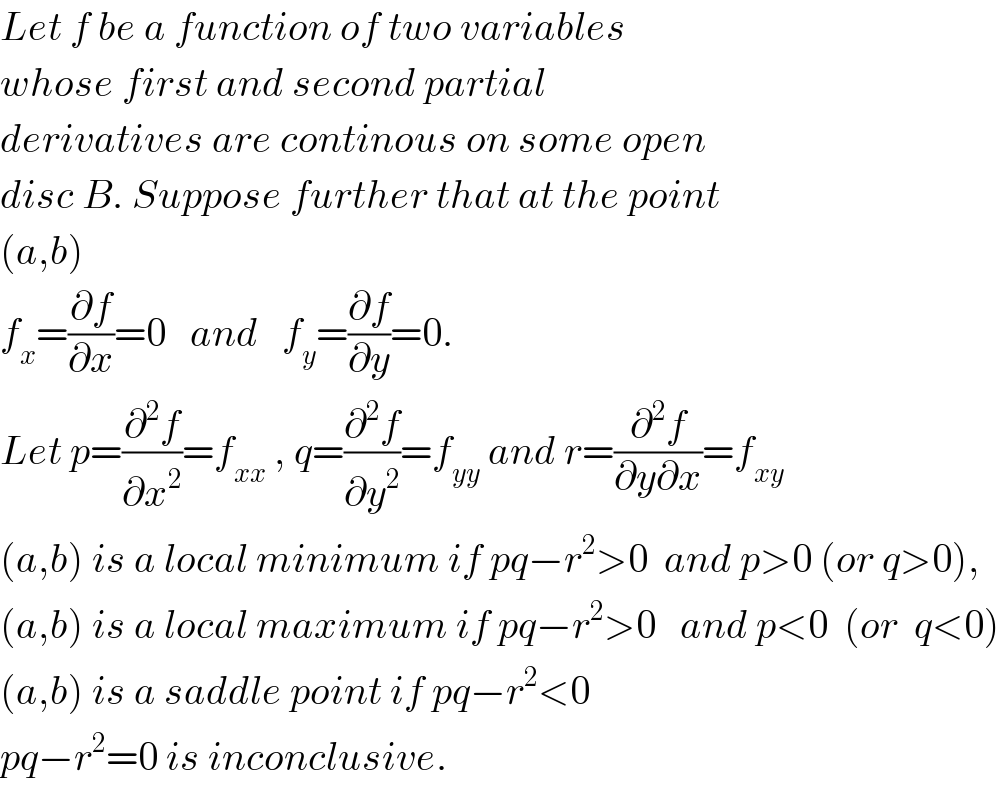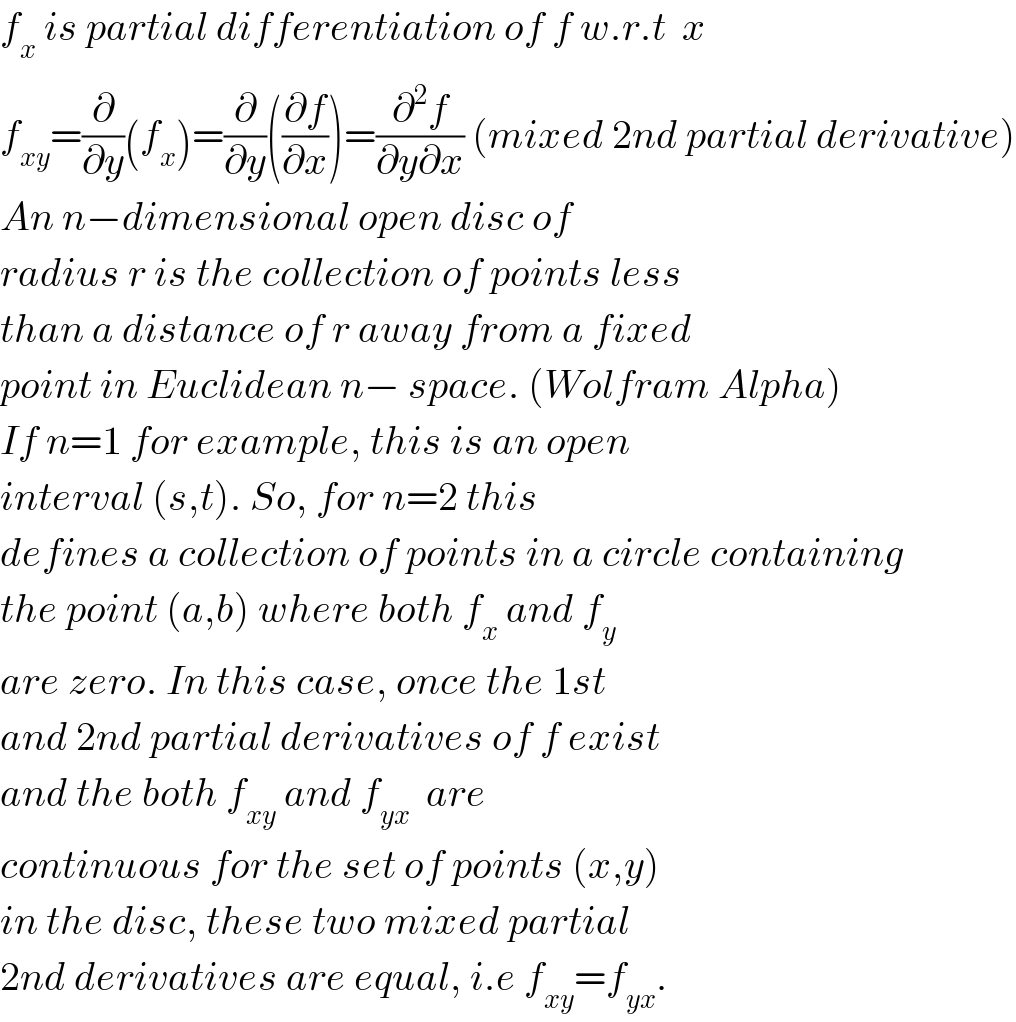
Question and Answers Forum
Question Number 2548 by Filup last updated on 22/Nov/15

Answered by Yozzi last updated on 22/Nov/15

Commented by Filup last updated on 22/Nov/15

Commented by Yozzi last updated on 22/Nov/15

Commented by Filup last updated on 22/Nov/15

